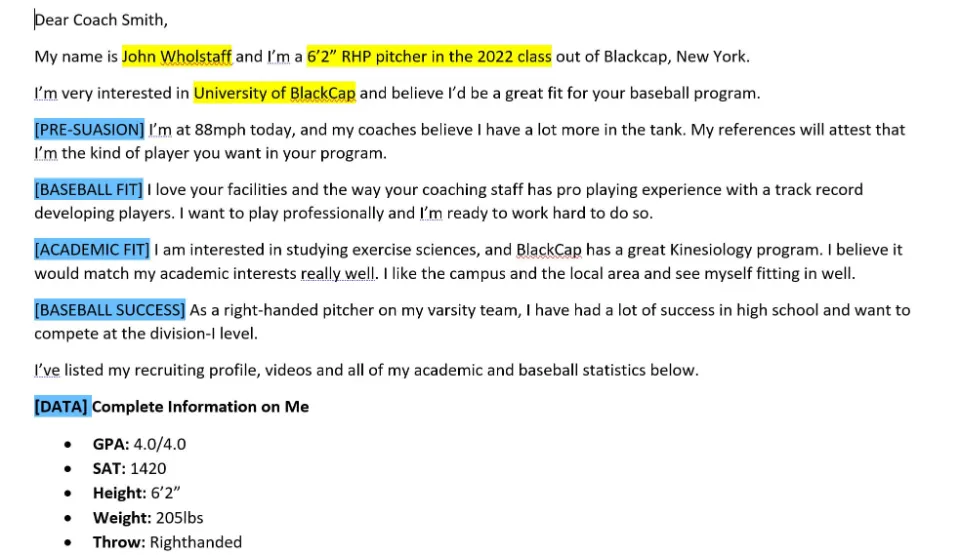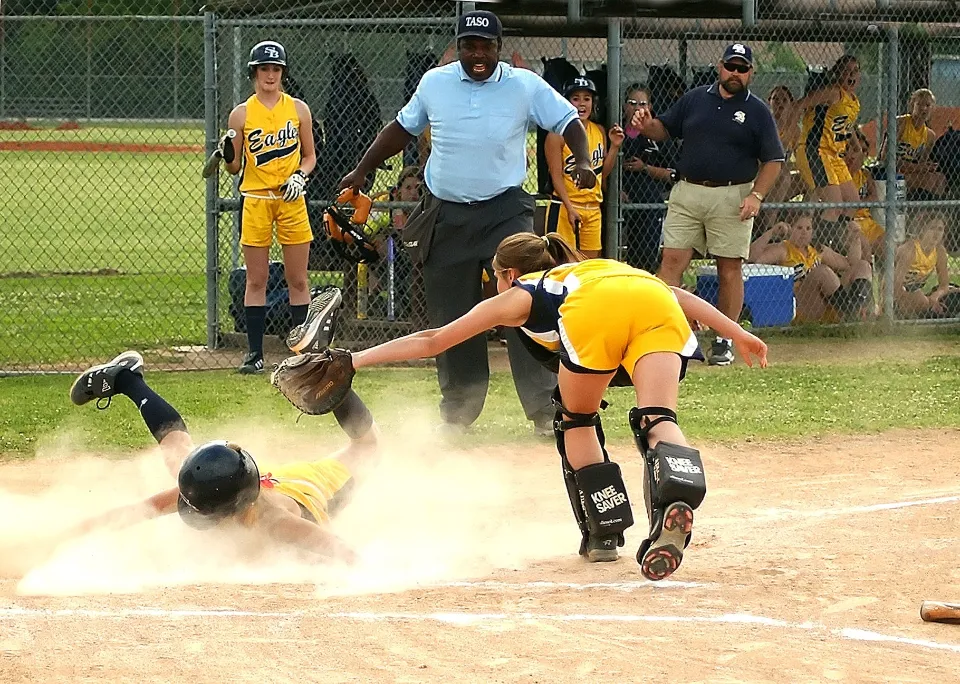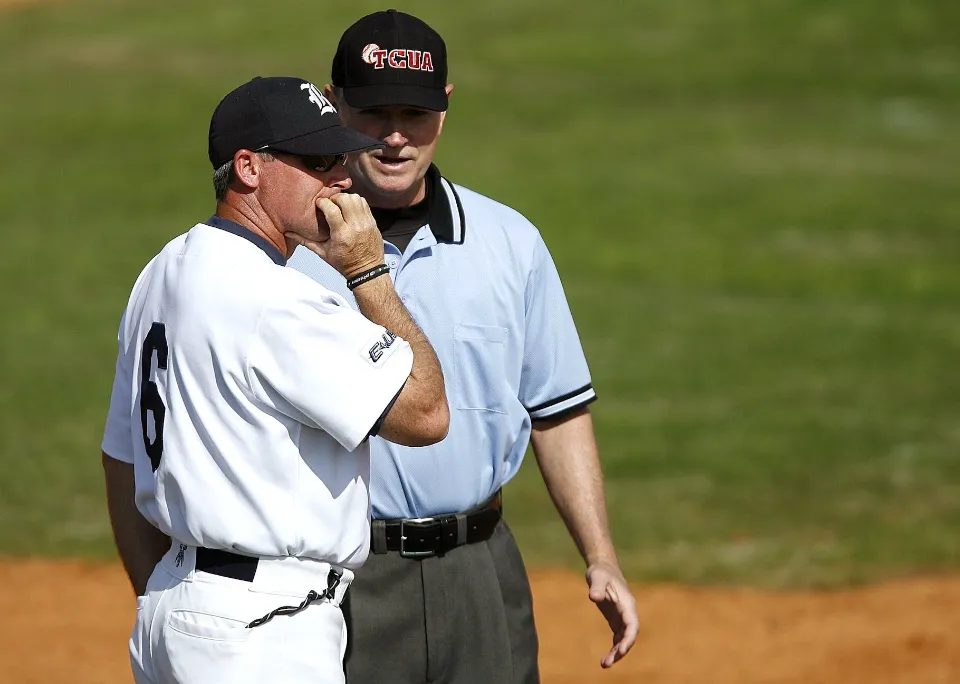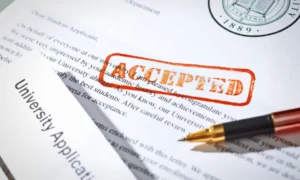
How to Email a College Coach? a Beginner’s Guide
This article is for you if you want to find out how to email a college coach effectively to get recruited.
A college coach can conduct their initial evaluation of you by receiving an introductory email from you, which can help you get started with a program you’re interested in.
There are a few specifics you need to be aware of before you start emailing college coaches. Here’s a rundown of what we’ll be covering to help you better understand how to email college coaches:
How to Email a College Coach?
One of the most effective ways to contact a college coach is by email. However, talking to a coach you’ve never met can be intimidating, and the issue is that many student-athletes find it difficult to know what to say to college coaches.
- Finding college coach contact information
- Write a good subject line
- Personalize (show you did research)
- Show why you’re interested
- Share GPA, test scores, and key stats
- Share video highlights and online profiles
- Include contact information
- Setting your email signature
- Sending and tracking the email
- Follow up!

Finding College Coach Contact Information
You must locate their contact details before you can begin emailing college coaches. How can I get in touch with a coach? There are two excellent choices.
- Via the school athletic website
- Via a recruiting-specific software tool
Search Google for the school’s athletic website to find it.
Write a Great Subject Line
Your subject line should include important information like your grad year (e.g., Class of 2023), name, position, height, weight, and GPA.
Make an effort to make your subject line unique. Given that they receive hundreds of emails every day, coaches are more likely to click on links in emails with interesting subject lines.
Additionally, while it’s important to include pertinent information, avoid using filler words or trivial details. Since the email is coming from you, you could, for instance, delete your name from the subject line.
Personalize Your Email (show You Did Research)
Every day, hundreds of emails are sent to college coaches. Any email you send to multiple coaches using a template will be immediately deleted by them.
Consequently, how do you personalize your emails? The procedure is straightforward: find out more about the coach and their program, and include a brief compliment on something they’ve done that you find cool.

Don’t be lazy; read the articles, browse their Twitter feed, and visit the athletic website. There will be something of interest there.
Then, in one or two sentences, summarize this. You’ll learn more about the college and program from your research as well. You may come to the conclusion that it isn’t a good fit after all.
It’s time to demonstrate to the coaches why you are interested in their program now that you have a strong opening few sentences.
Show Why You’re Interested
After adding personalization, write one or two sentences outlining your motivation for choosing the school and program.
Say that this university has a strong engineering program, for instance, if becoming an engineer is your goal. Or, if you appreciate the academic assistance they offer student-athletes, say so.
Nothing about your sport needs to be mentioned. After all, you are an athlete who is a student. However, since you are emailing a college coach, it is best for you to explain why you are drawn to their program and the institution.
The next step is to demonstrate to them that you have the credentials and aptitude to compete at the next level after explaining why you are applying.
Share GPA, Test Scores, and Key Stats
Even if you are one of the top athletes in the nation, if your academic standing and standardized test results are below average, you may not be able to compete at the next level.
You are a student first and an athlete second, despite the cliche. To give yourself the best chance of playing in college, you must have the highest GPA and test scores.
Your GPA, test results, intended major (if you know it), and other significant figures pertaining to your sport must all be included. For instance, your goal-scoring total if you play forward in soccer or your free throw shooting percentage if you play basketball.
The coach needs to know if you’re a good academic fit for the school before determining if you’re a good fit athletically, so without it, you’re wasting their time. Following the disclosure of your academic background and pertinent statistics, you must disclose any video highlights.

Share Video Highlights and Online Profiles
College recruiting coaches have long used video analysis as a tool for decision-making. After the covid-19 pandemic broke out a few years ago, video has grown even more crucial.
Many college programs lack the funds to fly across the nation to watch every potential player in action. Due to limited funding, many colleges look locally for student-athletes. The entire nation can now be reached by coaches thanks to video, though.
If you have any highlights, be sure to post them to YouTube, Hudl, Vimeo, or another user-friendly video hosting site.
So that the coaches can quickly review your highlights and information, be sure to include links to your video and profile in your email.
Include Contact Information and References
It’s time to add your contact information and references now that you’ve shared your online profile and video. Use a free email service like Gmail to create a professional-looking email address if you haven’t already.
The coaches will be able to quickly contact you and add you to their database if you also include your phone number and email address.
If you share content related to recruiting, you should also include your Twitter and Instagram accounts. The college recruiting landscape is increasingly dominated by social media platforms like Twitter.
Include any references that college coaches can call for more information, too. Your club or high school coach will typically be one of them. Your online profile can include references if you use ProducitveRecruit or another online recruiting platform.
Setting Your Email Signature
A strong email signature will highlight your online presence and contact details while reinforcing who you are. Make sure to set one in your preferred email client.

Sending and Tracking the Email
It’s time to send your email now that you’ve put so much effort into writing it.
Go to the email program you use to send emails, such as Outlook, Gmail, or another program. I advise labeling the email if you use one of these services so you can easily keep track of your correspondence with college coaches.
Follow Up
Because college coaches are so busy, it’s likely that your initial email won’t be answered. Numerous factors could be at play, but it is not your responsibility to speculate on them. To the best of your ability, you must advance the process. You can only influence what you can. Unfortunately, you have no direct control over the coach’s response.
A coach’s response may be constrained by some factors. For instance, depending on your sport, coaches can’t get in touch with you until a certain day during the recruiting process.
Tips on How to Email College Coaches

- Always have a professional, polite, and excited tone in your emails, while letting your personality shine through. I suggest starting with “Dear Coach XXX and Coach YYY” to the head coach and associate head coach or assistant coach.
- Obtain the email addresses of the coaches and perform a search/Google on the program. For example, “Tennessee volleyball,” then go to the volleyball website. Read about the program’s history, standing in their conference or the nation, successes, and roster.
- Send the “Intro Email with Video” to the head coach and assistant coach and CC the 3rd coach, if there is one. When one of the coaches responds, reply back to that coach and “CC” the other coaches. You always want the head coach to know your name, know that you’re proactive, and be aware of communication going on between you and the coaching staff
- The “Intro Email with Video” will be the longest email you send because you are introducing yourself to the coaches.
- An example of a subject line I like is: “DIANNE DENECOCHEA 2022 6’4″ 6-Rotation Pin Hitter, GPA 3.8”. The secret is to play to your advantage! If your approach jump touch is 9’10” or more, put that in the subject line along with your GPA (if it is at least 3.5). If you’re about to compete at a qualifier, add that at the end of the subject line for “Email updates/check-ins.”
- Send “Check-In/Update Emails” leading up to tournaments/qualifiers/To send new videos, updates on you, etc., to JOs/AAUs. – – anywhere that coaches could watch you play – ask again if they need your position in your grad year or if they already said they do, omit that part.
- In the world of volleyball, always leave a positive impression. The volleyball community is incredibly large in terms of players, coaches, and institutions. The volleyball world may be expanding quickly, but it sometimes feels incredibly small. I have to assume you want to make a good impression on people you meet playing the sport of volleyball that you love.
- Always reply on the same day or the following day to emails from college coaches. Thank them for the email and, after you have done your research on the school and are interested in continuing the recruiting process with them, send an “Intro email with video” that is tailored as a thank you response to them for contacting you.
- If a school sends you a standard, generic email or an invitation to a camp or clinic that appears to have been sent to many players, you should still reply right away if you are interested in the school. After saying “thank you,” respond as I suggested in response number 6. If the coach asks you to complete the Recruit Questionnaire, do it and send them a separate email thanking them and informing them that you did.
- Always make contact last, as a rule of thumb. The college coach should never be the last to email you and receive no response. Even if a school is not for you, thank them for contacting you, let them know you are interested in other schools and opportunities, and wish them and their team the best of luck in the future.
The Best Time to Email College Coaches
What time is best for athletes and parents to email college coaches? Unfortunately, no one solution will satisfy all coaching preferences. Athletes should therefore think like coaches when sending emails to coaches. Before pressing “send,” bear these three points in mind.
- Is it the season? You can still email college coaches during the season even though they are very busy with practices and games. Be mindful of their game schedule
- How long is practice? To get a better idea of when coaches will be available to read emails, ask them what time they practice during the week.
- How late is too late? As a general rule, refrain from sending any messages to college coaches between 11 p.m. and midnight. and 6 a.m. in their time zone.

Who to Email Besides the Head Coach?
Athletes’ best interests are sometimes served by sending an email to the head coach. However, you might have more success reaching out to someone besides the head coach, depending on your sport and division level.
Student-athletes may find it challenging to know who to email first in larger sports programs because there are frequently several coaches and coordinators on staff.
Start with the recruiting coordinator if there is one for the program. Since they manage all aspects of recruiting for the program, this is frequently the best person to address your introductory email to.
Look for a position coach or an assistant coach if there isn’t a specific person in charge of recruiting. Be specific and use their name when you contact anyone, regardless of the situation.
Why Do You Need to Email College Coaches?
- They need to know who you are, and they need to know that you have a strong interest in their school and understand why you want to go there and play for their program. You are just a needle waiting to be found in a haystack if coaches don’t have this information.
- Sending an email is how you start the recruiting process with a school and the best and easiest way to communicate with college coaches. As soon as you can, you must learn more. They can reply to you on June 15th, immediately following your sophomore year, and you can then move forward in the hiring process with a YES, they need your position in your graduate year or a NO, they do not, you send them a kind email of appreciation and move on.
- Emailing is the best way to send videos and keep checking in. You cannot hear back from Division 1 or Division 2 college coaches until June 15 if you are still in your junior year. In order for coaches to be aware of you and add you to their database so they can watch you play (and for reason #1! ), you should still start emailing them as a freshman and sophomore.). Again, coaches from Division 1 and Division 2 can call you and respond to your email after June 15 and throughout your junior year. Regardless of your high school year, coaches from Division 3 and NAIA can answer your emails and phone calls.
Conclusion: Email a College Coach
You’re just about to send that email, but check your spelling and proofread it first. By reading your email aloud, you can easily identify odd word choices or grammatical errors. You’ll recognize when a sentence needs to be corrected when you hear it. You can also copy and paste the contents of your email into Google Translate to check for typos.
I would approach emailing college coaches in that manner. Which approach from today’s guide will you try first, I want to turn it over to you now.
FAQs
What to Do If Your Coach Doesn’t Play You?
If you are still not getting playing time, it may be time to approach the coach. It’s up to you to approach your coach. The more logical course of action would be to have your parents approach your coach first, but this lacks ownership and responsibility. Likewise, don’t sneak up on your coach at practice.
How Do You Write a Thank You Email to a Coach?
To write a thank you note to a coach, you should start by introducing yourself and then thank the coach for the specific reason you’re reaching out. Finish the email by relating your experience to why you are interested in the institution and how it will benefit you moving forward.
What Are Nice Messages to Write to Your Coach?
- You are a fantastic coach, and I feel fortunate to know you.
- I reached heights I never thought I’d reach thanks to your constant inspiration and support.
- I appreciate your motivating me to excel at everything I do.
- I appreciate you recognizing and bringing out the best in me.
- More…


